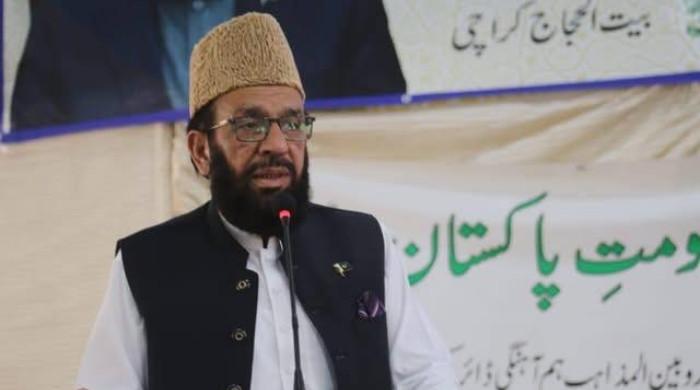Pakistan urges India to adhere to rules as UNSC president
“As India assumes this role, we would also like to once again remind it of its legal obligation to implement the UNSC resolutions on Jammu and Kashmir,” says FO
August 01, 2021
- Pakistan hopes India will abide by all the rules and norms of the UNSC after assuming its presidency.
- The president is bound to act in accordance with the rules of procedures of the UNSC, says FO spokesperson.
- “As India assumes this role, we would also like to once again remind it of its legal obligation to implement the UNSC resolutions on Kashmir,” says FO.
ISLAMABAD: Pakistan has expressed hope that India would abide by all the relevant rules and norms during its month-long presidency of the United Nations Security Council (UNSC).
In a statement, the Foreign Office spokesperson Zahid Hafeez Chaudhri on Saturday said: “We hope that India will abide by the relevant rules and norms governing the conduct of the Security Council presidency."
“As India assumes this role, we would also like to once again remind it of its legal obligation to implement the UNSC resolutions on Jammu and Kashmir,” he added.
As India is set to be the president of the UN body during the month of August, the FO spokesperson reminded that the president is responsible for the conduct and running of meetings of the council “and is bound to act in accordance with the rules of procedures”.
Earlier on June 16, Minister for Foreign Affairs Shah Mahmood Qureshi had addressed a letter to the President of the UNSC and the United Nations Secretary-General, sharing with them Pakistan's concern that India may be contemplating further illegal action in occupied Kashmir after its August 5, 2019, move of scrapping the region's special status.
A statement by the Foreign Office in this regard had said that the foreign minister apprised the UNSC president and the UN secretary-general that there are reports indicating "India may be contemplating the imposition of further illegal and unilateral measures in the Indian Illegally occupied Jammu and Kashmir (IIOJK), including division, bifurcation and additional demographic changes in the occupied territory".
Qureshi had also drawn attention to India's continued military siege of occupied Kashmir for 22 months with a massive campaign to suppress the Kashmiris' legitimate demands and its gross and systematic violations of human rights.












